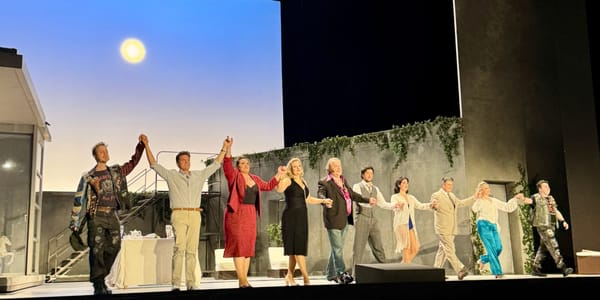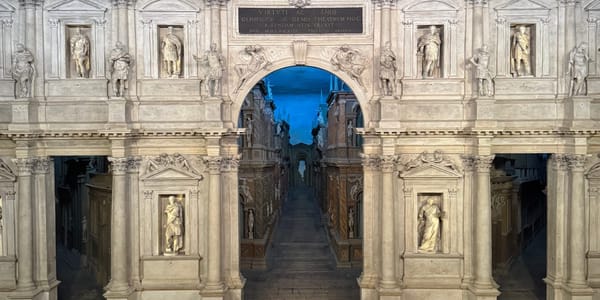Winterreise by Staatsballett Berlin
A genre-blurring production where postmodern soundscapes, haunting choreography, and fragments of tradition collide in an unsettling, unforgettable winter journey.
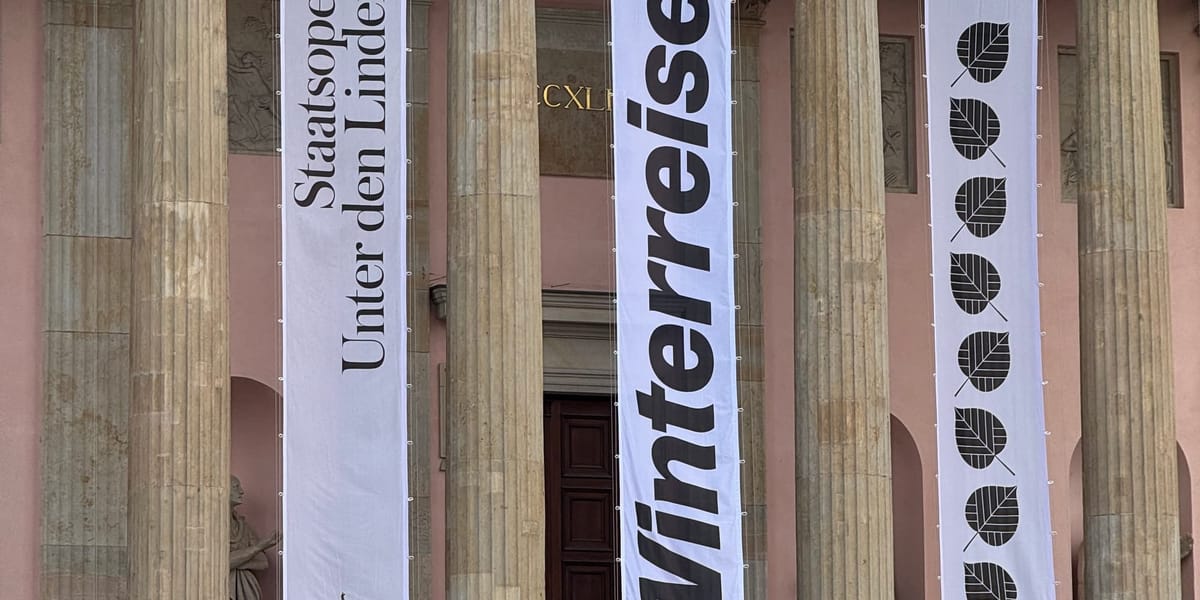
🎭 Winterreise
🩰 Staatsballett Berlin
🕺 Christian Spuck, 2025
🎶 Hans Zender nach Franz Schubert, 1993
🏛️ Staatsoper Berlin
🗓️ 17.05.2025
“DIE LIEBE LIEBT DAS WANDERN, GOTT HAT SIE SO GEMACHT”
The much-anticipated premiere of Winterreise by Staatsballett Berlin takes Franz Schubert’s iconic Liederzyklus as both its foundation and departure point, creating a production that oscillates between homage and reinvention. At times, it’s unclear whether we’re listening to Schubert’s music disrupted by contemporary additions, or whether a new composition is momentarily haunted by traces of the original. Either way, the result is a compelling blend of musical vocabularies, both vocal and instrumental.
Vocal delivery alone spans an astonishing range—from traditional Lieder stylings to whispering, shouting, aspirated phrases, and spectral glissandi. It’s less about linear storytelling and more about painting the emotional topography of the Winterreise—one that meanders from aggression to melancholy, clarity to cacophony.
What makes this reconstruction so thrilling is its imaginative soundscape. The score features instruments not often heard in an operatic or balletic context: accordion, rain wand, and what sounded like a guitar or mandolin alongside more traditional ones used unconventionally. A standout moment comes courtesy of the French horn, mimicking the sound of wind with a recurring whoosh that reinforces the cold, desolate environment of the traveler’s inner and outer journey.
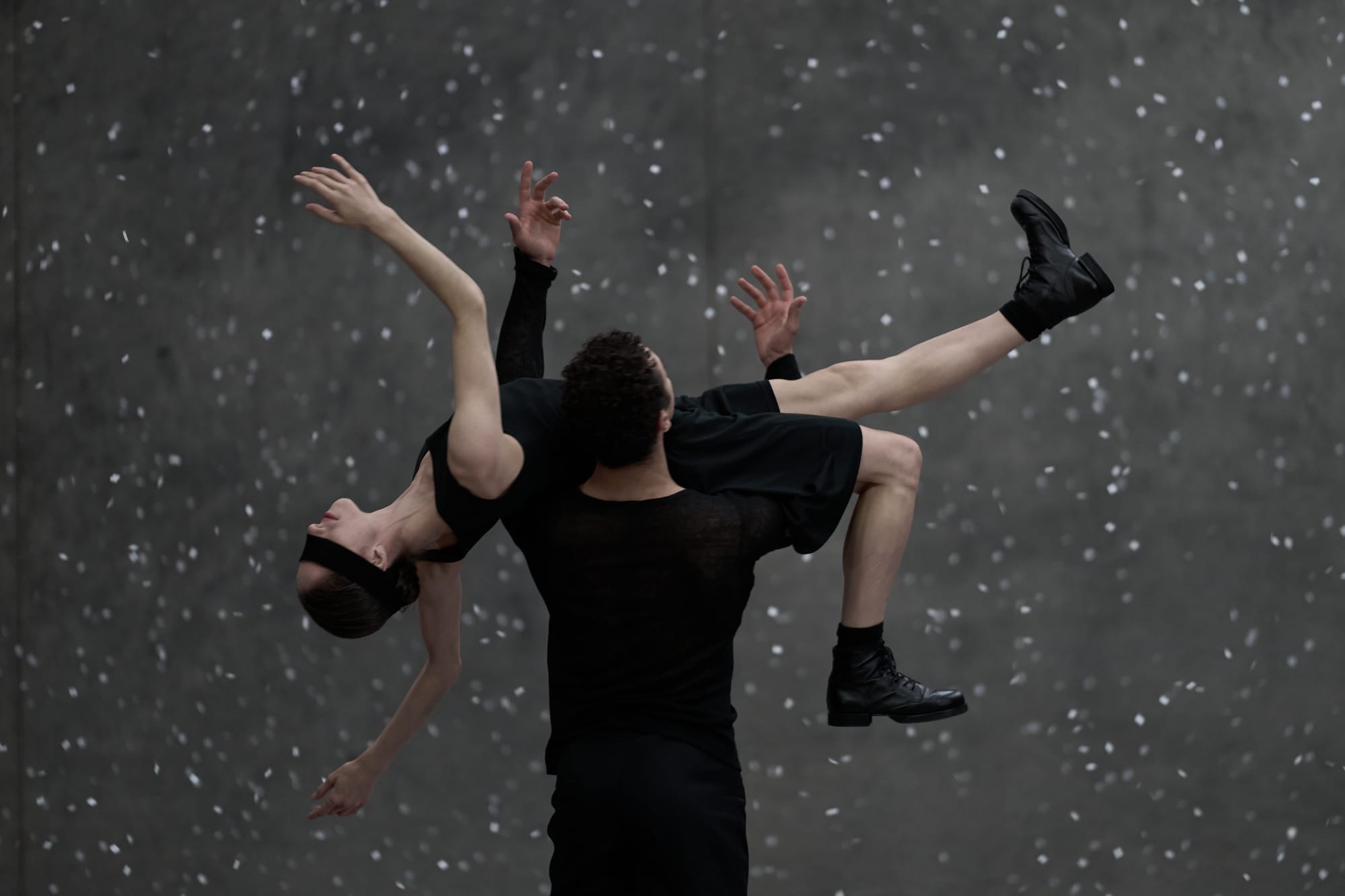
There’s also a welcome reminder here of the cultural and artistic value of the Lied itself—a genre too often eclipsed by opera, symphonic works, or contemporary music forms. Winterreise, in this form, asserts that the Lied still has something urgent and relevant to say, even (or especially) when refracted through a modern lens.
Of course, this is first and foremost a ballet—though with the excitement of the musical novelty and the active theatrical involvement of the tenor, the production marks Staatsballett Berlin’s latest foray into the realm of genre-blurring dance theatre. Visually, the stage is unmistakably “Spuckian”: a concrete dreamscape marked by movable platforms and stark lighting. Dancers rise and fall from trapdoors, lights descend like celestial bodies, and space itself seems to breathe. The dancers themselves don’t perform linear roles, but instead express the intense moods of a very non-linear Winterreise journey.
The choreography thrives in the ensemble scenes—particularly the sequential canons and sculptural freeze frames teased in the promotional material. I especially made note of the contortionist movements dominating the choreography, stretching the vocabulary of ballet into a territory that’s beautifully androgynous, emotionally opaque, and physically curious. I found myself watching these moments with fascination, not fully understanding—but fully wanting to. The final image lingers: the entire company slowly descends below the stage, disappearing like figures swallowed by snowdrifts, or mourners entering a shared grave. A quiet, devastating end to a journey without resolution.
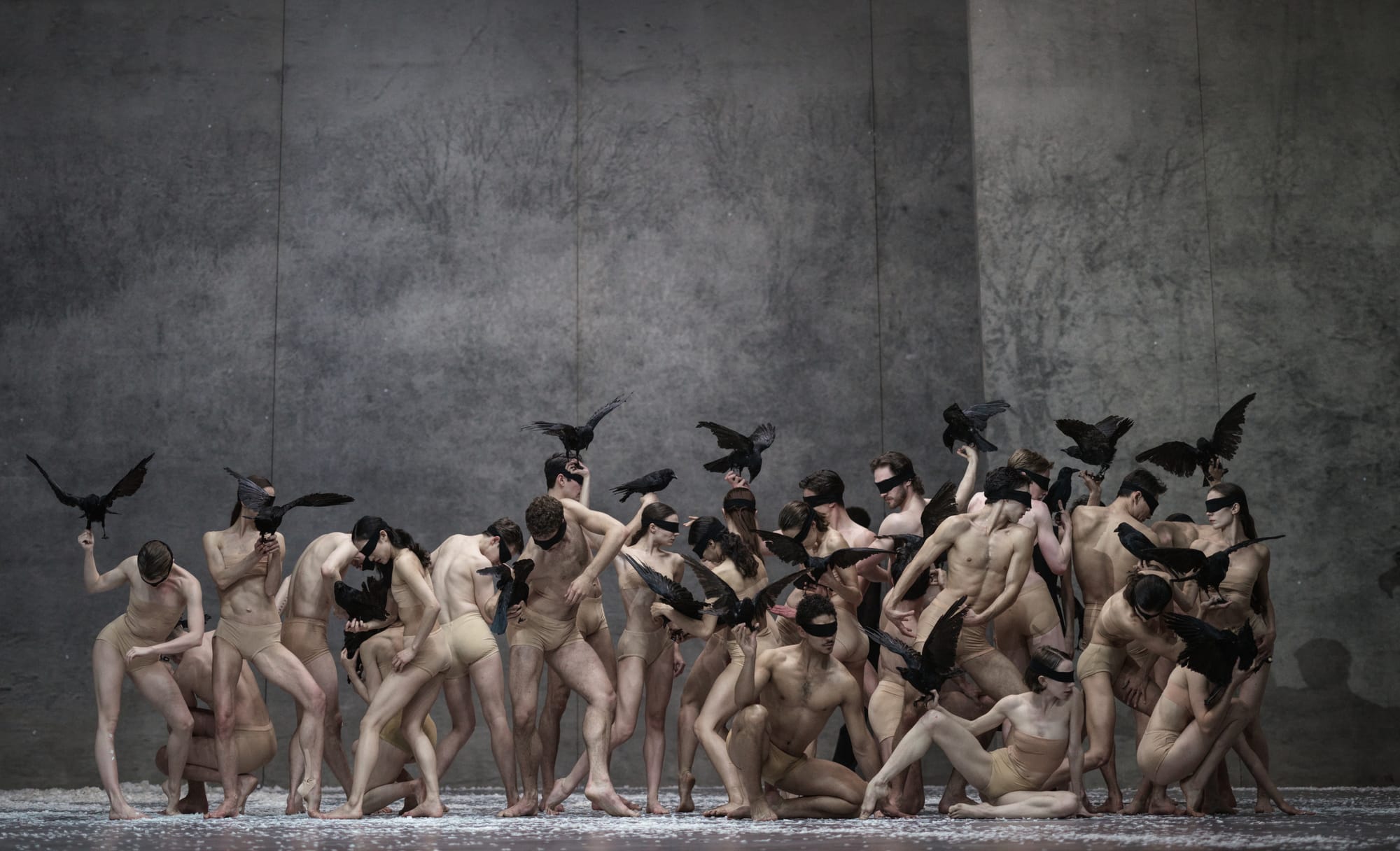
One last reflection, which ties together much of what the evening evoked: art, regardless of its origin or intent, will always be interpreted through the lens of its audience. Art meets us where we're at. Throughout the performance, moments I perceived as somber or tragic were occasionally met with laughter—perhaps nervous, perhaps ironic, perhaps misplaced. One line in particular struck me: “Die Post bringt keinen Brief für dich.” In Schubert’s time, this might have meant a terminal rupture—death, estrangement, war. But for a contemporary audience, “no mail today” more likely conjures thoughts of Amazon deliveries gone awry or postal strikes. It’s a small, perhaps humorous shift in perspective—but one that reminds us just how much the emotional grammar of art is shaped by the times we live in.
In the end, Winterreise doesn’t offer answers so much as it holds up a mirror—to Schubert, to the Lied tradition, to ballet as a form, and to us as viewers. It asks us to sit with discomfort, to follow a path that’s more internal than external, and to notice how meaning shifts when filtered through different times, bodies, and instruments. Like any true journey, the production leaves you somewhere else than where you began—even if you’re not entirely sure where that is.
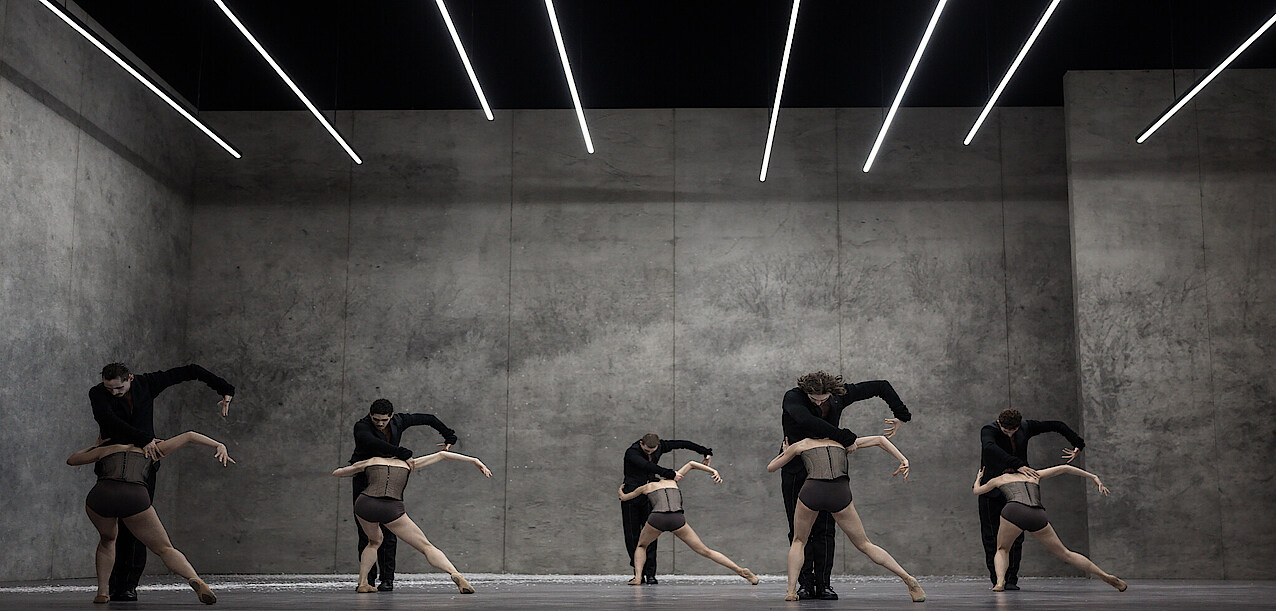
Cast - 17.05.
Choreography and Staging Christian Spuck
Music Hans Zender
Set Design Rufus Didwiszus
Costumes Emma Ryott
Lighting Design Martin Gebhardt
Dramaturgy Christian Spuck / Michael Küster / Katja Wiegand
Staged by Daniel Mulligan / Eva Dewaele / Fabio Palombo
Musical Direction Dominic Limburg
Staatskapelle Berlin
Tenor Matthew Newlin


